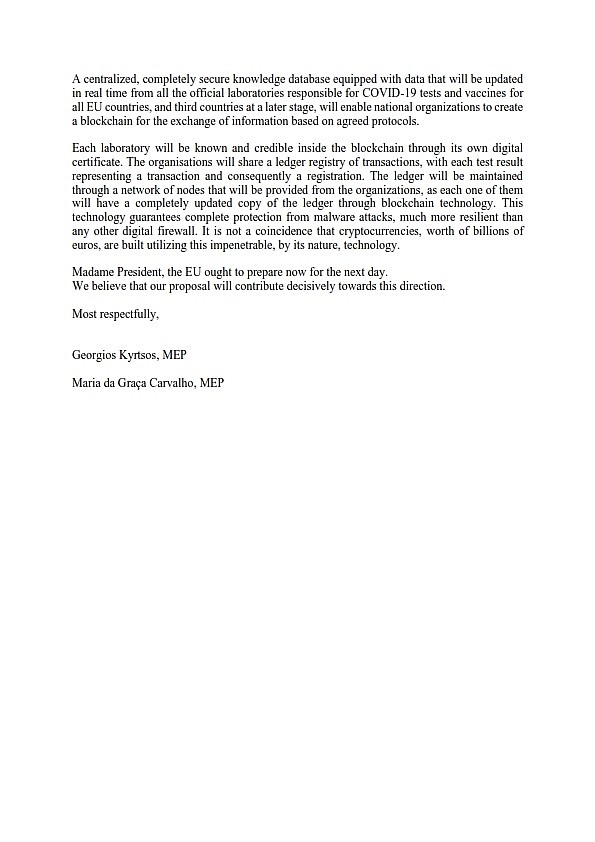Work in Parliament Eurodeputados apelam à criação de um mecanismo da UE para validar e registar os testes e vacinas Covid-19
The authenticity of COVID-19 test certificates is an issue of serious concern among all EU member countries. MEPs Georgios Kyrtsos and Maria da Graça Carvalho have proposed to the President of the European Commission, Ursula Von der Leyen, the creation of an EU mechanism that would assure the validity of COVID-19 tests, but also of the forthcoming vaccinations.
The proposal involves the use of blockchain technology to create a trustworthy validity mechanism that would contribute significantly to restoring confidence between member states at cross-border levels, thus leading to a normalisation of movement. With the beginning of vaccinations, the need for valid certificates becomes even more imperative.
The implementation of this system could be assigned to the European Centre for Disease Prevention and Control and, at a later stage, incorporated as a model solution in the recent EU initiative on European Blockchain Services Infrastructure.
With such a technological tool all EU member states would be able to better control COVID-19 certificate authenticity (tests as well as vaccinations) at a relatively low cost. Blockchain technology allows COVID-19 tests or vaccination certificates to be verified in real time in regards to their origin (labs), subject (civilians, travellers etc.) and results (test outcome).
MEPs Kyrtsos and Carvalho envision a centralized, completely secure, knowledge database that will be updated in real time with data from all the official laboratories responsible for COVID-19 tests and vaccines. The system would start with laboratories inside the EU, evolving to third countries at a later stage. With this network, national organizations could create a blockchain for the exchange of information based on agreed protocols.
In such a system, each laboratory will be transparent and credible inside the blockchain through its own digital certificate. The organisations will share a ledger registry of transactions, with each test result representing a transaction and consequently a registration. The ledger will be maintained through a network of nodes that will be provided by the organizations, each of them will gave a completely updated copy of the ledger through blockchain technology. This technology guarantees complete protection from malware attacks, being much more resilient than any other digital firewall. It is not a coincidence that cryptocurrencies, worth billions of euros, are built using this impenetrable technology.

